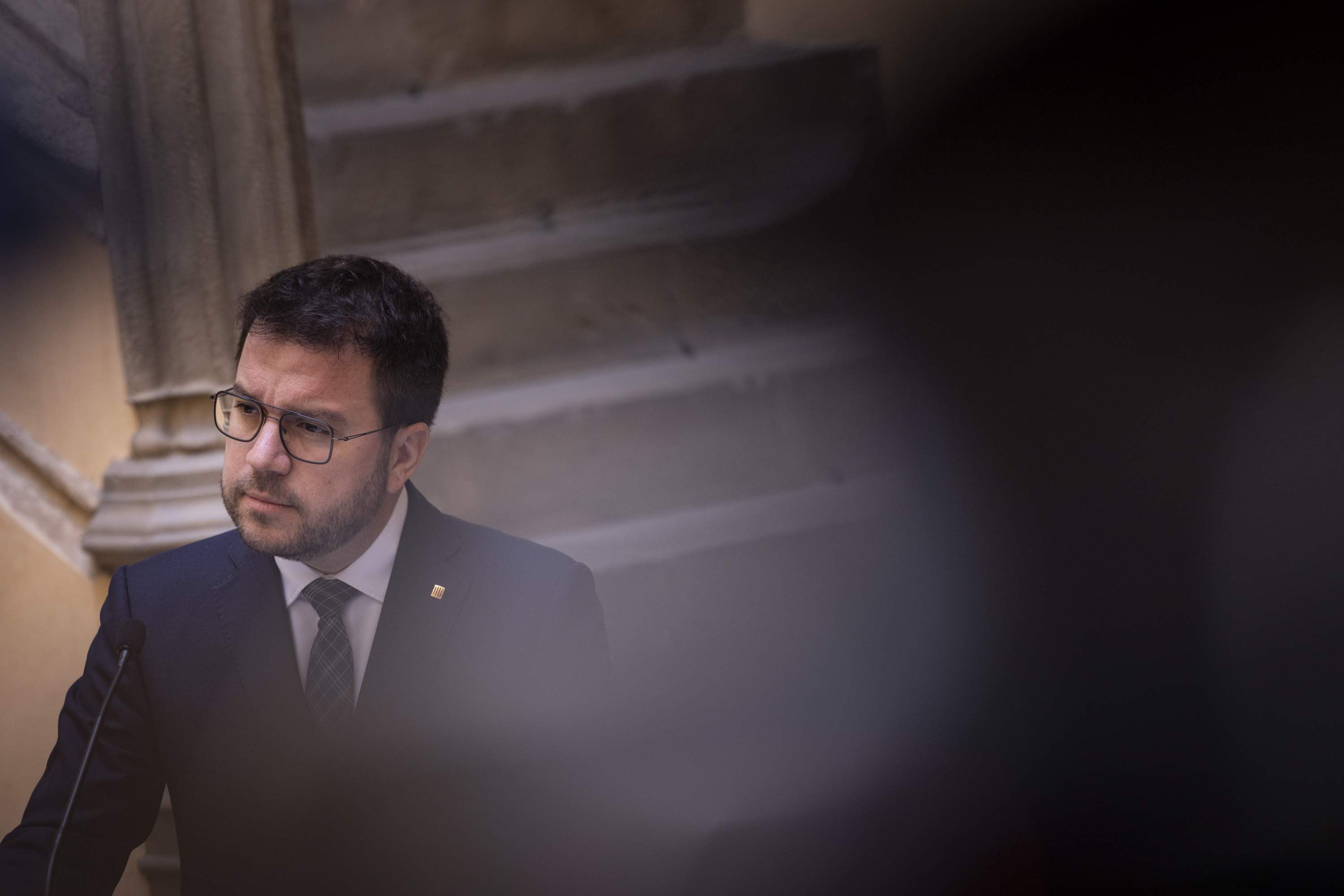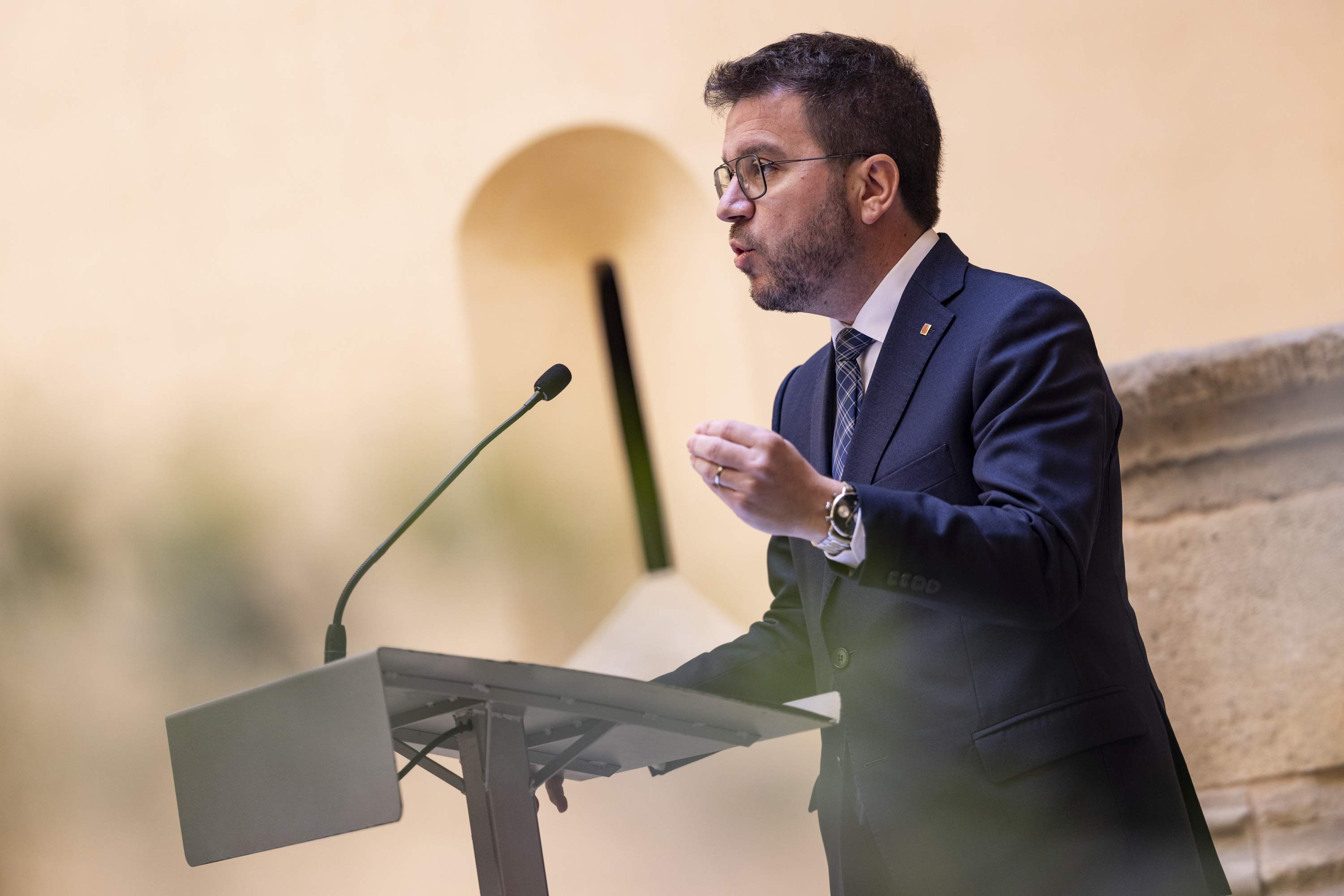"Do you want Catalonia to be an independent state?" This is the question proposed by Pere Aragonès for a new referendum on self-determination in Catalonia to be held through an agreement with the Spanish state. The president of Catalonia - and Republican Left (ERC) candidate to continue in the role after the May 12th election - has announced the hypothetically-proposed question this Tuesday after receiving the report "Identification and concretion of the legal ways to carry out a referendum that asks the citizens of Catalonia about independence", which he himself commissioned from the Institute of Self-Government Studies, a public research unit, following the report of the expert committee for the Clarity Agreement, the Catalan government's initiative to lay down a framework for a legal path to independence. The presentation of the report comes now, on the eve of the parliamentary election called for May 12th and with the parties already immersed in the election pre-campaign.

Taking its inspiration from the independence referendum held in Scotland in 2014, agreed with the UK's Conservative government of the day, the question that Catalans would answer in the referendum proposed by Aragonès includes the requirements set by the Venice Commission's code so that the question is "clear and comprehensible... not misleading, unbiased, and not suggesting any or a specific answer”. Thus, "Do you want Catalonia to be an independent state?" would be the question that would appear on the ballots with two response options: yes or no. "It is a question with a binary answer for a referendum without a quorum requirement for voter turnout and which would offer us a clear mandate to resolve the political conflict between Catalonia and the Spanish state," Aragonès summarized in a press conference.
Article 92 of Spain's Constitution, the priority route
A new referendum agreed with the Spanish state has been Aragonese's chosen course, always rejected from Madrid, during this legislature that ended abruptly after the failure to pass a budget. In the report from the Institute of Self-Government Studies, Article 92 of the Spanish Constitution is signalled as the best way to make it possible. "It is the priority legal route, most suitable and feasible for the calling of a referendum on the independence of Catalonia", concludes the research body, which also points to other possible paths such as the reform of Spanish Referendum Law 2/1980 on the regulation of the different referendum modalities or the delegation of state functions to authorize referendums through Article 150.2 of the Constitution. "The fact that one path is identified as the priority does not mean that the others are excluded. It is important to emphasize that the current constitutional framework offers different paths," Aragonès pointed out.
The Spanish government under Pedro Sánchez has always closed the door to an agreed referendum to decide the political future of Catalonia, but Aragonès stresses that "we are not facing an impossibility" with the proposal that he has now set out specifically. "The report is excellent material for the new phase of negotiations with the state. We are not facing an impossibility. We have been told so many times that things were impossible, but they ended up becoming reality, like the pardons or the amnesty. These are the best examples to show that, through conviction and perseverance, we will make it possible," the president of the Generalitat assured. The ERC candidate was asked about the words of Carles Puigdemont at the Elna event, where he placed a new referendum among the objectives: "I want to express my satisfaction that today there are many more of us who defend it. One year it wasn't so shared, the only thing I can say is that I'm glad, and I celebrate that ," said Aragonès.
The questions of 2014 and 2017
The question that Aragonès backed this Tuesday is a new formula, different from those that Catalan voters were asked to respond to in the independence consultation of November 9th, 2014 (the so-called "9-N") and in the self-determination referendum of October 1st, 2017 (the 1-O), both held against the will of the Spanish state. On the 9-N ballot papers there were two questions, each with two possible response options: Firstly: "Do you want Catalonia to become a state?". Those voters who checked the 'yes' box, were then asked to answer: "Do you want this state to be independent?". On the 1-O ballot papers, on the other hand, there was only a single question, just as Aragonès now proposes, although with slightly different wording. It was: "Do you want Catalonia to be an independent state in the form of a republic?"

